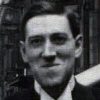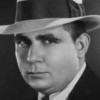Cruel and savage as orthodoxies have always proved to be, the faithful seem able to convince themselves that the heretics, as they continue to crop up, get nothing worse than their due, and to rest with an easy conscience.
Learned Hand (1872-1961) American jurist
Speech (1955-01-29), “A Fanfare for Prometheus,” American Jewish Committee annual dinner, New York City
(Source)
Quotations about:
savagery
Note not all quotations have been tagged, so Search may find additional quotes on this topic.
Ignoring his cries of pity,
she seized his left arm at the wrist; then, planting
her foot upon his chest, she pulled, wrenching away
the arm at the shoulder — not by her own strength,
for the god had put inhuman power in her hands.
Ino, meanwhile, on the other side, was scratching off
his flesh. Then Autonoe and the whole horde
of Bacchae swarmed upon him. Shouts everywhere,
he screaming with what little breath was left,
they shrieking in triumph. One tore off an arm,
another a foot still warm in its shoe. His ribs
were clawed clean of flesh and every hand
was smeared with blood as they played ball with scraps
of Pentheus’ body.[λαβοῦσα δ᾽ ὠλένης ἀριστερὰν χέρα,
πλευραῖσιν ἀντιβᾶσα τοῦ δυσδαίμονος
ἀπεσπάραξεν ὦμον, οὐχ ὑπὸ σθένους,
ἀλλ᾽ ὁ θεὸς εὐμάρειαν ἐπεδίδου χεροῖν:
Ἰνὼ δὲ τἀπὶ θάτερ᾽ ἐξειργάζετο,
ῥηγνῦσα σάρκας, Αὐτονόη τ᾽ ὄχλος τε πᾶς
ἐπεῖχε βακχῶν: ἦν δὲ πᾶσ᾽ ὁμοῦ βοή,
ὃ μὲν στενάζων ὅσον ἐτύγχαν᾽ ἐμπνέων,
αἳ δ᾽ ἠλάλαζον. ἔφερε δ᾽ ἣ μὲν ὠλένην,
ἣ δ᾽ ἴχνος αὐταῖς ἀρβύλαις: γυμνοῦντο δὲ
πλευραὶ σπαραγμοῖς: πᾶσα δ᾽ ᾑματωμένη
χεῖρας διεσφαίριζε σάρκα Πενθέως.]Euripides (485?-406? BC) Greek tragic dramatist
Bacchæ [Βάκχαι], l. 1125ff [Messenger/Ἄγγελος] (405 BC) [tr. Arrowsmith (1960)]
(Source)
Agave and the Bacchantes, seized by the spirit of Dionysus, attack the disrespectful King Pentheus, Agave's son.
(Source (Greek)). Alternate translations:
Then with both hands
Seiz'd his left arm, and stamping on the ribs
Of this unhappy victim, tore away
His shoulder, nor appeared th' exertion great,
For by the God, with ease was she enabled
Her bloody purpose to effect: but Ino,
On his right side, full many a ghastly wound
Inflicted; with Autonoë, the whole Choir
Of Bacchanalian Dames press'd on, and join'd
In one tremendous shout: his groans continued
Till he had breath'd his last. They howl'd, one rent
His arm away, another with his foot
The sandal; they laid bare his ribs, and scatter'd,
Like balls, the mangled morsels of his flesh.
[tr. Wodhull (1809)]
Seizing his left arm at the elbow and propping her foot against the unfortunate man's side, she tore out his shoulder, not by her own strength, but the god gave facility to her hands. Ino began to work on the other side, tearing his flesh, while Autonoe and the whole crowd of the Bacchae pressed on. All were making noise together, he groaning as much as he had life left in him, while they shouted in victory. One of them bore his arm, another a foot, boot and all. His ribs were stripped bare from their tearings. The whole band, hands bloodied, were playing a game of catch with Pentheus' flesh.
[tr. Buckley (1850)]
She caught him in her arms, seized his right hand,
And, with her feet set on his shrinking side,
Tore out the shoulder -- not with her own strength:
The god made easy that too cruel deed.
And ino laboured on the other side,
Rending the flesh: Autonoe, all the rest,
Pressed fiercely on, and there was one wild din --
He groaning deep, while he had breath to grown,
They shouting triumph; and one bore an arm,
One a still-sandled foot, and both his sides
Lay open, rent. Each in her bloody hand
Tossed wildly to and fro lost Pentheus' limbs.
[tr. Milman (1865)]
[Agave] seized his left arm, then, grappling with her hands,
Planted her foot upon the wretch’s breast,
And tore it from the shoulder. It was not
Her strength, but the god’s might which did the deed.
Ino assailed the other side, and rent
His flesh. Autonoe and the gathered crowd
Of Bacchants aided, and a cry arose;
He groaning, while the breath remained in him,
They shouting shrilly. This one bears an arm
That one a booted foot. To shreds they tore
His mangled body, and with bloody hands
All tossed his flesh about exultingly.
[tr. Rogers (1872), l. 1081ff]
And she caught his left hand in her grip, and planting her foot upon her victim’s trunk she tore the shoulder from its socket, not of her own strength, but the god made it an easy task to her hands; and Ino set to work upon the other side, rending the flesh with Autonoe and all the eager host of Bacchanals; and one united cry arose, the victim’s groans while yet he breathed, and their triumphant shouts. One would make an arm her prey, another a foot with the sandal on it; and his ribs were stripped of flesh by their rending nails; and each one with blood-dabbled hands was tossing Pentheus’ limbs about.
[tr. Coleridge (1891)]
But his left arm she clutched in both her hands,
And set against the wretch's ribs her foot,
And tore his shoulder out -- not by her strength,
But the God made it easy to her hands.
And Ino laboured on the other side,
Rending his flesh: Autonoë pressed on -- all
The Bacchanal throng. One awful blended cry
Rose -- the king's screams while life was yet in him,
And triumph-yells from them. One bare an arm,
One a foot sandal-shod. His ribs were stripped
In mangled shreds: with blood-bedabbled hands
Each to and fro was tossing Pentheus' flesh.
[tr. Way (1898)]
Round his left arm she put
Both hands, set hard against his side her foot,
Drew ... and the shoulder severed! -- Not by might
Of arm, but easily, as the God made light
Her hand's essay. And at the other side
Was Ino rending; and the torn flesh cried,
And on Autonoë pressed, and all the crowd
Of ravening arms. Yea, all the air was loud
With groans that faded into sobbing breath,
Dim shrieks, and joy, and triumph-cries of death.
And here was borne a severed arm, and there
A hunter's booted foot; white bones lay bare
With rending; and swift hands ensanguinèd
Tossed as in sport the flesh of Pentheus dead.
[tr. Murray (1902)]
Grasping his left arm below the elbow
and setting her foot against the unhappy man’s ribs,
she tore his shoulder out, not by her normal strength,
but the god gave a special ease to her hands.
Ino was wrecking the other side of him,
breaking his flesh, and Autonoe and the whole mob
of bacchants laid hold on him; all gave voice at once --
he moaning with what breath was left in him,
they screaming in triumph. One was carrying a forearm,
another a foot with the boot still on; his ribs
were being laid bare by the tearing; and each of the women, with hands
all bloody, was playing ball with Pentheus' flesh.
[tr. Kirk (1970)]
She gripped his right arm between wrist and elbow; she set her foot against his ribs; and she tore his arm off by the shoulder. It was no strength of hers that did it; the god was in her fingers and made it easy. Ino was at him on the other side, tearing his flesh; and now Autonoe joined them, and the whole pack of raving women. There was a single continuous yell -- Pentheus shrieking as long as life was left in him, the women howling in triumph. One of them was carrying an arm, another had a food with the shoe still on it; the ribs were stripped -- clawed clean. Every hand was thick red with blood; and they were tossing and catching, to and fro, like a ball, the flesh of Pentheus.
[tr. Vellacott (1973)]
She seized the waving arm by the wrist, then
Planted her foot upon his chest and pulled,
Tore the arm clean off the shoulder. The tongue
Of Pentheus stretched out in agony, his mouth ran blood
But no sound came. Ino, on the other side of him
Began to peel his flesh. Then Autonoe, the swarming
Horde of Maenads homed on him, his other arm
Was torn, a foot flew up in the air, still encased
Within his sandals, the last I saw, his rib-case
Dragged, clawed clean of flesh. They played
With lumps of flesh, tossed from hand to blood-stained
Hand ....
[tr. Soyinka (1973)]
She took hold of his left arm below the elbow
and braced her foot against his ribs, poor man,
and ripped the shoulder out -- and with no effort;
the god had made it easy for her hands.
Then Ino set to work on the other side,
rending his flesh, and Autonoe and all the throng
of bacchae set on him, shouting together,
he groaning out whatever breath he had left
while they were cheering. One carried off an arm
and one a foot, shoes and all; the ribs
lay naked through the mangling, and all the women
bloodied their hands, playing with Pentheus’ flesh,
[tr. Neuburg (1988)]
Seizing his left arm just above the wrist,
and pushing with her foot against his chest
she wrenched his arm clean out of the shoulder.
It was not her strength that did it
but the God's power racing in her blood.
Ino, her sister, was working the other side,
tearing off his flesh. And now Autonoe
pounced upon him, followed by the whole rabid pack.
The mountains boomed with shrill confusion --
Pentheus wailing while there was still a gasp left in him,
the women howling in their triumph.
One carried off an arm,
another a foot with the boot still on it.
They laid his ribs bare -- clawed them clean.
His blood still warm on their hands,
they tossed the flesh of Pentheus back and forth
like children playing games.
[tr. Cacoyannis (1982)]
Seizing his left forearm, bracing
Her foot in the ribs of the doomed man,
She ripped out the shoulder. Not by her strength,
But the god put skill in her hands
Ino ruined the other side,
Breaking the flesh, and Autonoe and the whole mob
Of Bacchants attacked, all one shout;
While he groaned with all his breath,
They screamed triumph. One carried off a forearm,
Another a foot still booted. His ribs
Were raked bare. Each bloodied her hands
Playing catch with Pentheus' flesh.
[tr. Blessington (1993)]
Seizing his left arm with her forearms,
and pressing her foot against the doomed man's ribs,
she tore off his shoulder, not by her own strength --
no, the god gave a special ease to her hands.
Ino completed the job, tearing off his other shoulder,
ripping pieces of flesh while Autonoe and the entire mob of Bacchae
continued to press upon him. Every kind of shout was mingled together,
and for as long as he had breath he screamed in pain
while the maenads were crying out in triumph. One was carrying an arm,
another a foot still in its hunting boot. The ribs were laid bare
by the tearing apart. All the women, with blood-spattered hands,
were playing ball with Pentheus' flesh.
[tr. Esposito (1998)]
Grabbing his left wrist with her hands, she braced
her foot against his ribs -- what a horrible fate for him --
and tore off his shoulder -- but not by brute strength.
The god made it come off easily in her hands.
On the other side Inô was taking him apart,
breaking off bits of meat. Autonoê and the mob of Bacchae
all went after him then. Then there was screaming everywhere.
He kept crying in pain as long as he had breath; they
were howling in triumph. Off went one with a forearm,
another took his foot -- with its hunting boot. And his ribs
were stripped, flesh torn away. They all had blood on their
hands. They tossed Pentheus’ meat like balls in a game of catch.
[tr. Woodruff (1999)]
Taking with both her hands
His left forearm and setting her foot hard
Against the ribs of this ill-fated man,
She tore his shoulder out -- not by her strength
But by the ease the god gave to her hands.
And Ino had destroyed his other side,
Breaking up his flesh, and Autonoé
And the Bakkhai mobbed him and everyone was screaming
At the same time -- he groaning his last breath,
And they raising the war cry of their triumph.
One of them was flaunting a severed arm,
Another held a foot still shod for hunting,
His ribs were being bared by clawing nails,
And all with bloodied hands were playing games
By tossing hunks of the flesh of Pentheus.
[tr. Gibbons/Segal (2000), l. 1274ff]
Taking his right hand in her grip and planting her foot against the poor man's flank, she tore out his arm at the shoulder, using a strength not her own but put in her hands by the god. Ino was destroying his other side, tearing his flesh, and Autonoe and the rest of the bacchic throng attacked him. The air was filled with cries: Pentheus moaned with all the breath he had in him, and the women raised a sacrificial shout. One woman was carrying an arm, another a good still in its boot, his flanks were stripped bare, the flesh torn from them, and every woman, hands red with blood, hurled Pentheus' flesh about like a ball.
[tr. Kovacs (2002)]
She placed her hands around his upper arm,
Put her foot upon his chest, and twisted
Off his arm as one might a chicken's wing.
The God must have given her the strength. Then
Ino, like a scavenger, was at him,
Scratching at his flesh, soon too Autonoe,
Then the whole marauding horde of Bacchai,
His dying death's howl joining with their shout
To form one long single ululation.
One carried an arm, another a foot
Which still wore a bloodstained shoe.
They tossed his flesh into the air for joy,
His ribs picked clean, were used to beat the drum,
The women danced wild and wet with the blood
Of my master ....
[tr. Teevan (2002)]
She then grabbed her son’s arm, stepped on his shoulder blade and ripped his arm clean off his body. The strength was not her own but her god’s. On the other side Ino was doing her part, tearing his flesh. So did Autonoe. The whole population of Maenads stopped and gazed at the spectacle. The whole place echoed with screams and he was groaning with pain while he was still alive. Then the Maenads began a war cry and each carried some part of Pentheus’ body. One carried a hand another a foot with its shoe still attached on it, others tore at his ribs showing them bare and others with bloody hands tossed parts of his flesh to each other.
[tr. Theodoridis (2005)]
Taking his left arm in her hands, and
wrenching her foot to the poor man's
ribcage, she ripped it right off his shoulder; not by her own
strength, but because the God made it come off in her hands.
And Ino was tearing into his other side as Autonoe and the entire
crowd of Bacchae had at him, and they shouted as one, he
holding himself up by the hand with his last few gasps of breath as they
started their call: "a-lululu..." One of them carried his forearm, an-
other, a foot still in its sandal, as his body's ripped
open and bare ribs uncovered; and each one, with blood dripping
hands, plays catch with Pentheus' flesh.
[tr. Valerie (2005)]
She seized his left arm, below the elbow,
pushed her foot against the poor man's ribs,
then tore his shoulder out. The strength she had --
it was not her own. The god put power
into those hands of hers. Meanwhile Ino,
her sister, went at the other side,
ripping off chunks of Pentheus's flesh,
while Autonoe and all the Bacchae,
the whole crowd of them, attacked as well,
all of them howling out together.
As long as Pentheus was still alive,
he kept on screaming. The women cried in triumph --
one brandished an arm, another held a foot --
complete with hunting boot -- the women's nails
tore his ribs apart. Their hands grew bloody,
tossing bits of flesh back and forth, for fun.
[tr. Johnston (2008), l. 1395ff]
Grabbing his left hand at the wrist,
she planted her foot against his flank and wrenched,
pulling his arm straight out of his shoulder --
not with her own strength, but the strength of the god.
Ino worked on the other side,
tearing off handfuls of skin,
while Autonoe and all the other Bacchae came, engulfing him.
The air was full of yelps and cries
and he heard what must have been his last scream,
delivered to his world with his last breath.
A shriek of triumph. One woman cradled an arm;
another had a foot still warm in its shoe.
His ribs were clawed down to the white,
and every woman's hands were daubed with blood
as they tossed chunks of him
back and forth like a game of ball.
[tr. Robertson (2014), l. 1128ff]
She grabbed his left hand in her arms
As she tread onto the ribs of that unlucky man
And then ripped his arm from his shoulder, not with her own strength
But the power which the god placed in her hands.
Ino was working through his other side,
Breaking apart his flesh, and Autonoê and the whole mob
Of the Bacchae was attacking -- there was just a single cry everywhere.
He was moaning out as much of the breath he happened to have,
And they were exulting. One woman was holding an arm;
Another had a foot still in its shoes; his sides were stripped
Nude, with flesh gone. Every woman’s hands were bloodied
As they played a ball game with Pentheus’ body’s parts.
[tr. @sentantiq (2018)]
Grabbing his left forearm in her hands, she braced her foot against his bruised ribs and tore the arm from his shoulder.
It wasn’t her own strength that did it, the god had given her hands some of his own.
Ino went to work on the other side, tearing the flesh from the bones, and Autonoë and the rest of the Bacchae fell on him.
There was so much noise, all of them together, him groaning with all the breath he could get and them raising their victory-cry.
One carried off an arm, another a foot, still shod.
His ribs were stripped bare and with bloody hands they threw what was left of Pentheus around like they were playing catch.
[tr. Pauly (2019)]
Seizing his left arm at the elbow and propping her foot against the unfortunate man’s side, she tore out his shoulder, not by her own strength, but with the god providing assistance to her hands. Ino began to work on the other side, tearing his flesh, while Autonoe and the rest of the crowd pressed on. All were making noise together, and he groaned to the extent that he had life left in him, while they shouted in victory. One of them started to carry an arm, another a leg, boots and all. His ribs were stripped bare by their tearings. The whole band, hands bloodied, started playing a game of catch with Pentheus’ flesh.
[tr. Buckley/Sens/Nagy (2020)]
She gripped his left arm below the elbow,
jammed her foot against the poor man’s ribs,
then ripped arm from shoulder with strength not her own.
The god had made it easy for her hands.
Ino all the while worked his other arm,
ripping flesh. Autonoe and the Bacchic pack
grabbed at him too, screaming in unison.
While he groaned (all that his breathing allowed)
theirs were shouts of joy. One left with his arm;
one his foot, the shoe still on. The mauling
exposed his ribs. And then, with hands blood stained,
as they would a ball, they tossed around his flesh.
[tr. Benn (2022)]
Only by fleeing did we avoid
being torn to pieces by the Bacchae,
but they attacked our grazing calves and not with swords in their hands.
You could have seen one of them, apart from the others, mauling with both hands
a young heifer with swelling udders, bellowing all the while;
and other women were ripping apart mature cows, shredding them up.
You could have seen ribs or a cleft hoof
being tossed up and down. Hanging from the fir trees
the ribs and hooves dripped bloody gore.
Bulls previously aggressive and tossing their horns in rage
now tumbled to the ground, their bodies dragged down
by the myriad hands of young women.
Their garments of flesh were ripped off
faster than you could have winked your royal eyes.[ἡμεῖς μὲν οὖν φεύγοντες ἐξηλύξαμεν
βακχῶν σπαραγμόν, αἳ δὲ νεμομέναις χλόην
μόσχοις ἐπῆλθον χειρὸς ἀσιδήρου μέτα.
καὶ τὴν μὲν ἂν προσεῖδες εὔθηλον πόριν
μυκωμένην ἔχουσαν ἐν χεροῖν δίχα,
ἄλλαι δὲ δαμάλας διεφόρουν σπαράγμασιν.
εἶδες δ᾽ ἂν ἢ πλεύρ᾽ ἢ δίχηλον ἔμβασιν
ῥιπτόμεν᾽ ἄνω τε καὶ κάτω: κρεμαστὰ δὲ
ἔσταζ᾽ ὑπ᾽ ἐλάταις ἀναπεφυρμέν᾽ αἵματι.
ταῦροι δ᾽ ὑβρισταὶ κἀς κέρας θυμούμενοι
τὸ πρόσθεν ἐσφάλλοντο πρὸς γαῖαν δέμας,
μυριάσι χειρῶν ἀγόμενοι νεανίδων.
θᾶσσον δὲ διεφοροῦντο σαρκὸς ἐνδυτὰ
ἢ σὲ ξυνάψαι βλέφαρα βασιλείοις κόραις.]Euripides (485?-406? BC) Greek tragic dramatist
Bacchæ [Βάκχαι], l. 734ff [Messenger/Ἄγγελος] (405 BC) [tr. Esposito (1998)]
(Source)
Telling Pentheus of how the Bacchantes, led by his mother, Agave, slew a herd of cattle. (Source (Greek)). Alternate translations:
By hasty flight
From these infuriate Bacchanalian dames
We scap'd; but they our grazing herds invaded,
Tho' in their hands no steely weapon gleam'd:
You might have seen one seize and firmly hold
A fatted heifer, others rent the limbs
Of steers asunder; ribs and cloven hoofs
Were toss'd around, from branching pine distill'd
Morsels of flesh and intermingled gore.
The raging bulls , who menac'd with their horns,
Were in a moment stretch'd upon the ground
Assail'd by many a blooming maid: the Daughters
Of royal Cadmus from the flesh tore off
The hides, ere you could close your eyes.
[tr. Wodhull (1809)]
We fled and escaped from being torn apart by the Bacchae, but they, with unarmed hands, sprang on the heifers browsing the grass. and you might see one rending asunder a fatted lowing calf, while others tore apart cows. You might see ribs or cloven hooves tossed here and there; caught in the trees they dripped, dabbled in gore. Bulls who before were fierce, and showed their fury with their horns, stumbled to the ground, dragged down by countless young hands. The garment of flesh was torn apart faster then you could blink your royal eyes.
[tr. Buckley (1850)]
We fled amain, or by the Bacchanals
We had been torn in pieces. They, with hands
Unarmed with iron, rushed on the browsing steers.
One ye might see a young and vigorous heifer
Hold, lowing in her grasp, like prize of war.
And some were tearing asunder the young calves;
And ye might see the ribs or cloven hoofs
Hurled wildly up and down, and mangled skins
Were hanging from the ash boughs, dropping blood.
The wanton bulls, proud of their tossing horns
Of yore, fell stumbling, staggering to the ground,
Dragged down by the strong hands of thousand maidens.
And swifter were the entrails torn away
Than drop the lids over your royal eyeballs.
[tr. Milman (1865)]
In hurried flight we hardly could escape
The Bacchants' clutch. and then they wreaked their rage
Albeit unarmed, upon the browsing herds.
Here might one see the fatling heifer seized,
And lowing, torn to pieces in their hands,
While others rent the kids to fragments there.
There hurled about, the ribs and cloven hoofs
Lay scattered; others cast into the pines
The gory gobbets dripping down with blood.
The wanton bulls, striving in vain to butt,
Were thrust perforce and headlong on the ground,
Driven by the myriad force of girling hands.
More quickly they tore off the flesh than though
Could'st close thine eyelids on thy royal eyes.
[tr. Rogers (1872), l. 694ff]
Thereat we fled, to escape being torn in pieces by the Bacchantes; but they, with hands that bore no weapon of steel, attacked our cattle as they browsed. Then wouldst thou have seen Agave mastering some sleek lowing calf, while others rent the heifers limb from limb. Before thy eyes there would have been hurling of ribs and hoofs this way and that; and strips of flesh, all blood-bedabbled, dripped as they hung from the pine-branches. Wild bulls, that glared but now with rage along their horns, found themselves tripped up, dragged down to earth by countless maidens’ hands. The flesh upon their limbs was stripped therefrom quicker than thou couldst have closed thy royal eye-lids.
[tr. Coleridge (1891)]
O then we fled, and fleeing scantly 'scaped
The Bacchanals' rending grasp. Down swooped they then
Upon our pasturing kine with swordless hand.
Then hadst thou seen thy mother in her grip
Clutch a deep-uddered heifer bellowing loud:
And others rent the calves in crimson shreds.
Ribs hadst thou seen and cloven hoofs far hurled
This way and that, and flakes of flesh that hung
And dripped all blood-bedabbled 'neath the pines.
Bulls, chafing, lowering fiercely along the horn
Erewhile, were tripped and hurled unto the earth,
Dragged down by countless-clutching maiden hands.
More swiftly was the flesh that lapped their bones
Stripped, than thou couldst have closed thy kingly eyes.
[tr. Way (1898)]
Thereat, for fear they tear us, all we fled
Amazed; and on, with hand unweaponèd
They swept toward our herds that browsed the green
Hill grass. Great uddered kine then hadst thou seen
Bellowing in sword-like hands that cleave and tear,
A live steer riven asunder, and the air
Tossed with rent ribs or limbs of cloven tread,
And flesh upon the branches, and a red
Rain from the deep green pines. Yea, bulls of pride,
Horns swift to rage, were fronted and aside
Flung stumbling, by those multitudinous hands
Dragged pitilessly. And swifter were the bands
Of garbèd flesh and bone unbound withal
Than on thy royal eyes the lids may fall.
[tr. Murray (1902)]
At this we fled
and barely missed being torn to pieces by the women.
Unarmed, they swooped down, upon the herds of cattle
grazing there on the green of the meadow. And then
you could have seen a single woman with bare hands
tear a fat calf, still bellowing with fright,
in two, while others clawed the heifers to pieces.
There were ribs and cloven hooves scattered everywhere,
and scraps smeared with blood hung from the fir trees.
And bulls, their raging fury gathered in their horns,
lowered their heads to charge, then fell, stumbling
to the earth, pulled down by hordes of women
and stripped of flesh and skin more quickly, sire,
than you could blink your royal eyes.
[tr. Arrowsmith (1960)]
So we took to our heels and escaped
being torn to pieces by the bacchants; but they attacked the grazing
heifers, with hands that bore no steel.
And one you could have seen holding asunder in her hands
a tight-uddered, young, bellowing heifer;
while others were tearing full-grown cows to pieces.
You could have seen ribs, or a cloven hoof,
being hurled to and fro; and these hung
dripping under the fir trees, all mixed with blood.
Bulls that were arrogant before, with rage
in their horns, stumbled to the ground,
borne down by the countless hands of girls.
The garments of flesh were drawn apart more quickly
than you could close the lids over your royal eyes.
[tr. Kirk (1970)]
So we fled, and escaped being torn in pieces by these possessed women. But our cattle were feeding there on the fresh grass; and the Bacchae attacked them, with their bare hands. You could see Agauë take up a bellowing young heifer with full udders, and hold it by the legs with her two arms stretched wide. Others were tearing our cows limb from limb, and you could see perhaps some ribs or a cleft hoof being tossed high and low; and pieces of bloody flesh hung dripping on the pine-branches. And bulls, which one moment were savagely looking along their horns, the next were thrown bodily to the ground, dragged down by the soft hands of girls -- thousands of them; and they stripped the flesh off their bodies faster than you could wink your royal eyes.
[tr. Vellacott (1973)]
We changed roles and became the hunted,
Fleeing for sweet life. Another moment and
We would have been shredded like chaff.
Balked of their prey, the Maenads turned upon our herd.
Unarmed, they swooped down on our heifers grazing
In the meadows, nothing in their hands, nothing.
Their bare arms sufficed. They rent young, stocky
Heifers in two - you should have heard their death bellows,
Seen these frail-built creatures wrench
Full-grown cattle limb from limb, ribs, hooves
Spiral into he air, fall in torrents of blood,
Seen our dismembered livestock hang from branches
Blood spattering the leaves, seen wild bulls
With surging horns, unapproachable till now
Tripped, sprawled, full-length on the ground
Bellow in unaccustomed terror as girlish limbs
Tore them apart, flayed them living.
[tr. Soyinka (1973)]
Well, we escaped, and managed to avoid
the bacchae’s mangling; but the cattle grazing
in the grass they set upon with their bare hands:
one could be seen to take a well-uddered heifer
and pull it apart mooing in her hands;
others carried off calves and mangled them;
you might have seen a rib or cloven hoof
hurled helter-skelter; things hung
and dripped beneath the firs, befouled with blood;
bulls, violent and raging in their horns
before, were stumbling their forms upon the earth,
driven by thousands of maidenly hands,
that swifter stripped the garment of their flesh
than you could close your lids on kingly eyes.
[tr. Neuburg (1988)]
At this we fled
and barely escaped being torn to pieces
by these God-struck maenads.
But our cattle --
our herds grazing on the grassy slopes -- oh!
They fell upon them with their naked hands.
You could see a woman sink her nails into a cow,
with its udders full, and left it, bellowing, high above her head.
Others dragged young heifers, ripping them apart.
Everywhere you looked,
ribs and cloven hooves
were flying through the air.
And from the pine branches
dangled lumps of flesh that dripped with blood. Majestic bulls
one minute aiming their horns with all their furious pride,
the next were stumbling to the ground,
overwhelmed by the swarming hands of girls,
their bones stripped clean of all their flesh,
faster than you could blink your royal eyes.
[tr. Cacoyannis (1982)]
Then we fled to escape being torn
To pieces by them. Barehanded,
They attacked cattle grazing grass.
You could see one woman drawing
Apart a heifer, fat and bellowing,
Others tore and mangled grown heifers.
You could see ribs or a cloven hoof
Thrown up and down and, suspended
From fir trees, drip defiled, with blood.
Arrogant bulls too, rage once filling
Their horns, were tripped bodily to the ground
Ravaged by hundreds of young hands,
And were stripped of their garment of flesh
Before you could blink your royal eyes.
[tr. Blessington (1993)]
So we were the ones who ran away, to escape
being torn apart by the Bacchae. And they attacked
our livestock as they were grazing on new grass.
No sharp weapons, but you'd have seen one woman
tear apart a young cow with her bare hands --
it was bellowing, its udder was swollen with milk. Others
ripped grown cows to pieces. You'd see ribs and feet
hurled every which way, hooves flying, pieces hanging
in the pine trees, smeared with blood and ripping.
Bulls in all their pride stumbled headlong:
They once had rage tossing on their long horns;
now more hands than you can count pull
them down -- young girls' hands. And strip off the flesh
that covered them, faster than a king could wink one eye.
[tr. Woodruff (1999)]
We ran away from them -- to escape being torn
Apart by the maenads. But with their bare hands,
Not with weapons of iron, then they began
To attack the grazing herds. You would have seen
One woman by herself with just her hands
Pulling in two a big young heifer that
Had swelling udders and was bellowing,
And meanwhile others were dismembering
The full-grown cattle, flaying them to shreds.
You would have seen the ribs and hooves hurled up,
Thrown down, flying through the air, and pieces
Hanging from the trees, still dripping blood.
Even arrogant bulls were stumbling, forced
To the ground, the anger in their horns outweighed
By the countless hands of girls -- their rags of flesh
Were torn from them much faster than you could
Have blinked your royal eyes.
[tr. Gibbons/Segal (2000), l. 842ff]
We ran away and thereby escaped being torn to pieces by the bacchants. But they, with n iron weapons in their hands, attacked some grazing cattle. You could have seen one of the women tearing asunder a bellowing fatted calf with her hands, while others tore heifers to pieces. You could have seen their flanks and cloven hooves hurled this way and that: pieces, drenched with blood, hung dripping from the fir trees. Bulls that till then were violent, with anger in their horns, were thrown to earth, dragged by countless female hands: their covering of flesh was torn in pieces faster than your majesty could blink your royal eyes.
[tr. Kovacs (2002)]
We turned and ran for it, for we have heard
How the Bacchai, when their god is with them,
Will eat raw the flesh from still-living beasts.
We escaped but they found our grazing herds.
They slaughtered them with nothing but their hands.
One dragged a calf form its own mother's teat
And tore it, as it bellowed, clean in two,
While others pulled apart whole heifers.
The woods soon seemed a bloody abattoir.
Even one proud-horned bull was dragged to earth,
His flesh, by fingernails, scratched from his bones
And the scrag ends hurled high into the trees.
All done by the hands of girls and women,
And quicker than a wink from a royal eye.
[tr. Teevan (2002)]
Then seeing we had run out of reach, they fell in fury upon our flocks, tearing the heifers apart with bear hands. Great, large beasts ripped into little shreds of blood and gristle faster than the lids can fall over your royal eyes.
[tr. Rao/Wolf (2004)]
We just managed to run away and escape the slaughter but they threw themselves, with no spear nor sword, at the calves that were quietly grazing nearby. One of those women tore a poor, tiny calf away from its mother’s udder and others ripped calves to bloody pieces with their bare hands and then they began eating them raw. My Lord, you could see bits of flesh strewn all around the place. Whole sides of animals, legs, other chunks of animal flesh hanging from the fir trees, dripping blood. Huge bulls, my Lord which only a few minutes earlier stood tall and proud, the sort that if one got them angry they’d tear everything apart with their massive horns, well, now they dropped their bodies to the ground and straightaway countless girls dragged them about with their bare hands and ... and by the time you blinked your royal eye, my Lord, they’d have the skin torn off those massive carcasses of them bulls.
[tr. Theodoridis (2005)]
And so we ran away in fear and avoided being torn to
bits and eaten like deer by the bacchants; but they
attacked our cattle, barehanded, as they grazed
in the field, and you could see one grab and stretch
the legs of a young, pink-uddered calf, bellowing, as other
Maenads pulled and tore a full-grown heifer apart.
And you'd have seen ribs or cloven hooves thrown
up and down as they dripped, hanging from
fir tree branches, cover'd in blood.
The proud bulls, which moments before had been fully
ready to charge, dropped their body down to earth,
brought down by countless maidens' hands as they
stripped the poor beast's flesh right off like clothes
in the time it'd take you to blink your highness' eye.
[tr. Valerie (2005)]
We ran off, and so escaped being torn apart. But then those Bacchic women, all unarmed, went at the heifers browsing on the turf, using their bear hands. You should have seen one ripping a fat, young, lowing calf apart -- others tearing cows in pieces with their hands. You could've seen ribs and cloven hooves tossed everywhere -- some hung up in branches dripping blood and gore. And bulls, proud beasts till then, with angry horns, collapsed there on the ground, dragged down by the hands of a thousand girls. Hides covering their bodies were stripped off faster than you could wink your royal eye.
[tr. Johnston (2008)]
We fled.
They would have torn us to pieces, those Bacchae.
Instead, they turned -- bare-handed --
on our herd of grazing cattle.
A single woman pulled a mewling calf in two,
while others clawed apart a full-grown heifer.
There were spread ribs and broken hooves
flung everywhere,
and pieces of flesh hung
dripping from the trees.
Great bulls, their power and fury tightening in their horns,
lowered their heads to charge
but were wrestled to the ground
by countless female hands and flayed alive --
faster, sire, than a blink of your royal eyes.
[tr. Robertson (2014)]
We ran. And just avoided a shredding by the Bacchae.
And since they couldn’t have us ...
They got the grazing cows instead. Attacked them with nothing but their hands.
You’d have seen them tearing a fat calf in two, screaming in their grasp. Look another way and there they were, rending pieces off a heifer.
You would have seen ribs and cloven hooves thrown all over the place, blood-drenched ribbons hanging from the trees, still dripping. Proud bulls, tossing their horns in defiant rage, were driven to the ground, torn down by more women’s hands than I could count. Their hides were ripped from the meat in the blink of an eye, even your kingly eyes.
[tr. Pauly (2019)]
We fled and escaped being torn apart by the Bacchants, but they, unarmed, sprang on the heifers browsing the grass. You could have seen one rending asunder a fatted lowing calf, while others tore apart cows. You could have seen ribs or cloven hooves tossed all about; caught in the trees they dripped, dabbled in gore. Bulls who formerly with hubris showed their fury with their horns had their bodies cut to the ground, dragged down by the countless hands of young girls. The garment of flesh was torn apart faster then you could blink your royal eyes.
[tr. Buckley/Sens/Nagy (2020)]
Civilization is hideously fragile, you know that; there’s not much between us and the horrors underneath. Just about a coat of varnish, wouldn’t you say?
C. P. Snow (1905-1980) English novelist, physical chemist, bureaucrat [Charles Percy Snow]
A Coat of Varnish, ch. 4 [Luria] (1979)
(Source)
We must realize that man’s nature will remain the same so long as he remains man; that civilization is but a slight coverlet beneath which the dominant beast sleeps lightly and ever ready to awake.
You think that a wall as solid as the earth separates civilization from barbarism. I tell you the division is a thread, a sheet of glass. A touch here, a push there, and you bring back the reign of Saturn.
John Buchan (1875-1940) Scottish novelist, poet, and politician; Governor-General of Canada (1935 -1940)
The Power-House, ch. 3 (1916)
(Source)
After our ages-long journey from savagery to civility, let’s hope we haven’t bought a round-trip ticket.
Cullen Hightower (1923-2008) American writer, aphorist, salesman.
(Attributed)
Attributed in Forbes magazine (29 Mar 1993).
We are all ready to be savage in some cause. The difference between a good man and a bad one is the choice of the cause.
William James (1842-1910) American psychologist and philosopher
Letter to E. L. Godkin (24 Dec 1895)
(Source)
There is a raging tiger inside every man whom God put on this earth. Every man worthy of the respect of his children spends his life building inside himself a cage to pen that tiger in.
Murray Kempton (1917-1997) American journalist.
America Comes of Middle Age: Columns, 1950-1962 (1963)
(Source)
You have just dined, and however scrupulously the slaughterhouse is concealed in the graceful distance of miles, there is complicity ….
Ralph Waldo Emerson (1803-1882) American essayist, lecturer, poet
“Fate,” The Conduct of Life, ch. 1 (1860)
(Source)
Nature, as we know her, is no saint.
Ralph Waldo Emerson (1803-1882) American essayist, lecturer, poet
“Experience,” Essays: Second Series (1844)
(Source)
There are many humorous things in the world, among them the white man’s notion that he is less savage than the other savages.
Mark Twain (1835-1910) American writer [pseud. of Samuel Clemens]
Following the Equator, ch. 21 (1897)
(Source)
To delight in war is a merit in the soldier, a dangerous quality in the captain, and a positive crime in the statesman.













